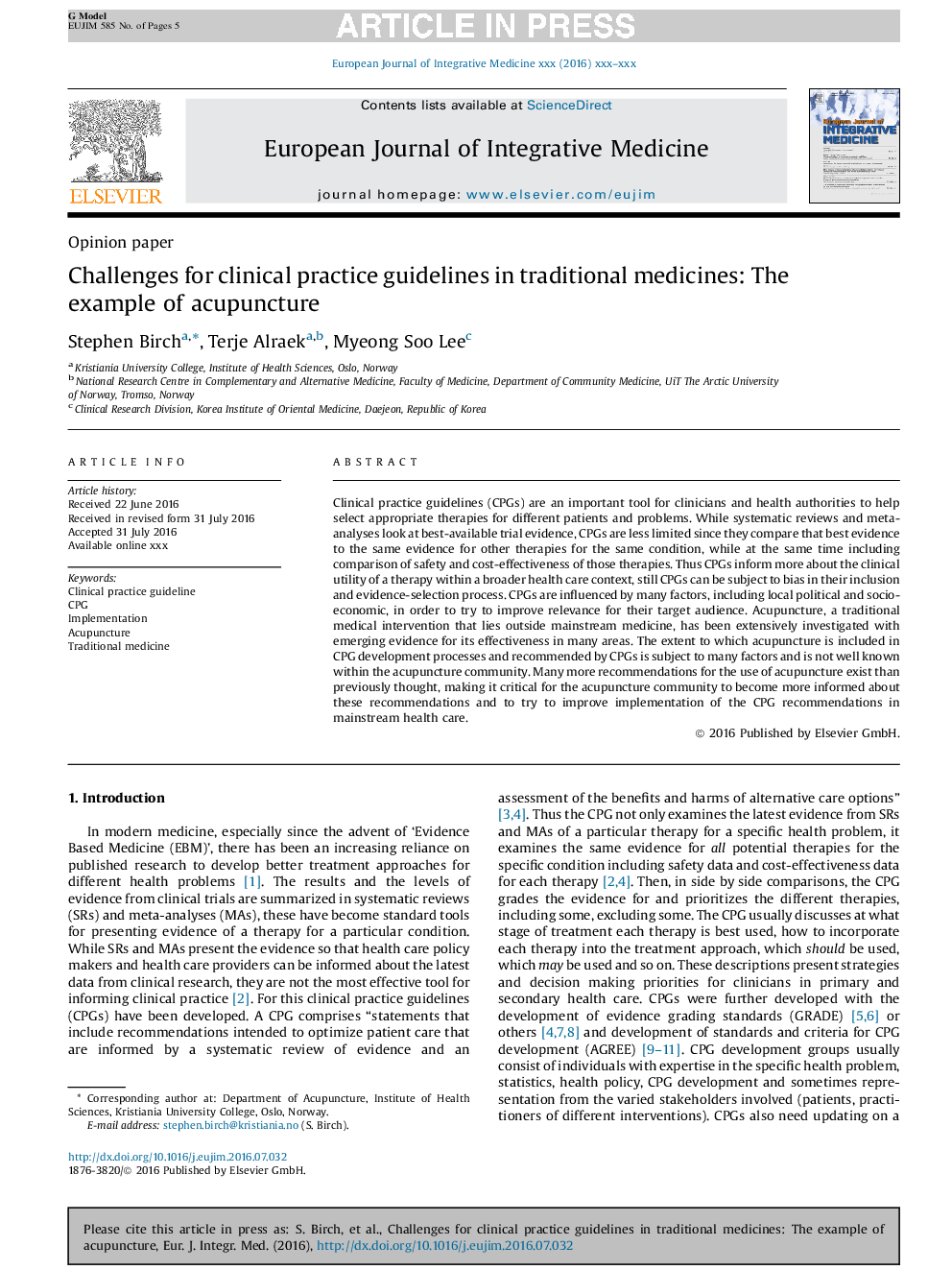| Article ID | Journal | Published Year | Pages | File Type |
|---|---|---|---|---|
| 5547348 | European Journal of Integrative Medicine | 2016 | 5 Pages |
Abstract
Clinical practice guidelines (CPGs) are an important tool for clinicians and health authorities to help select appropriate therapies for different patients and problems. While systematic reviews and meta-analyses look at best-available trial evidence, CPGs are less limited since they compare that best evidence to the same evidence for other therapies for the same condition, while at the same time including comparison of safety and cost-effectiveness of those therapies. Thus CPGs inform more about the clinical utility of a therapy within a broader health care context, still CPGs can be subject to bias in their inclusion and evidence-selection process. CPGs are influenced by many factors, including local political and socio-economic, in order to try to improve relevance for their target audience. Acupuncture, a traditional medical intervention that lies outside mainstream medicine, has been extensively investigated with emerging evidence for its effectiveness in many areas. The extent to which acupuncture is included in CPG development processes and recommended by CPGs is subject to many factors and is not well known within the acupuncture community. Many more recommendations for the use of acupuncture exist than previously thought, making it critical for the acupuncture community to become more informed about these recommendations and to try to improve implementation of the CPG recommendations in mainstream health care.
Related Topics
Health Sciences
Medicine and Dentistry
Complementary and Alternative Medicine
Authors
Stephen Birch, Terje Alraek, Myeong Soo Lee,
